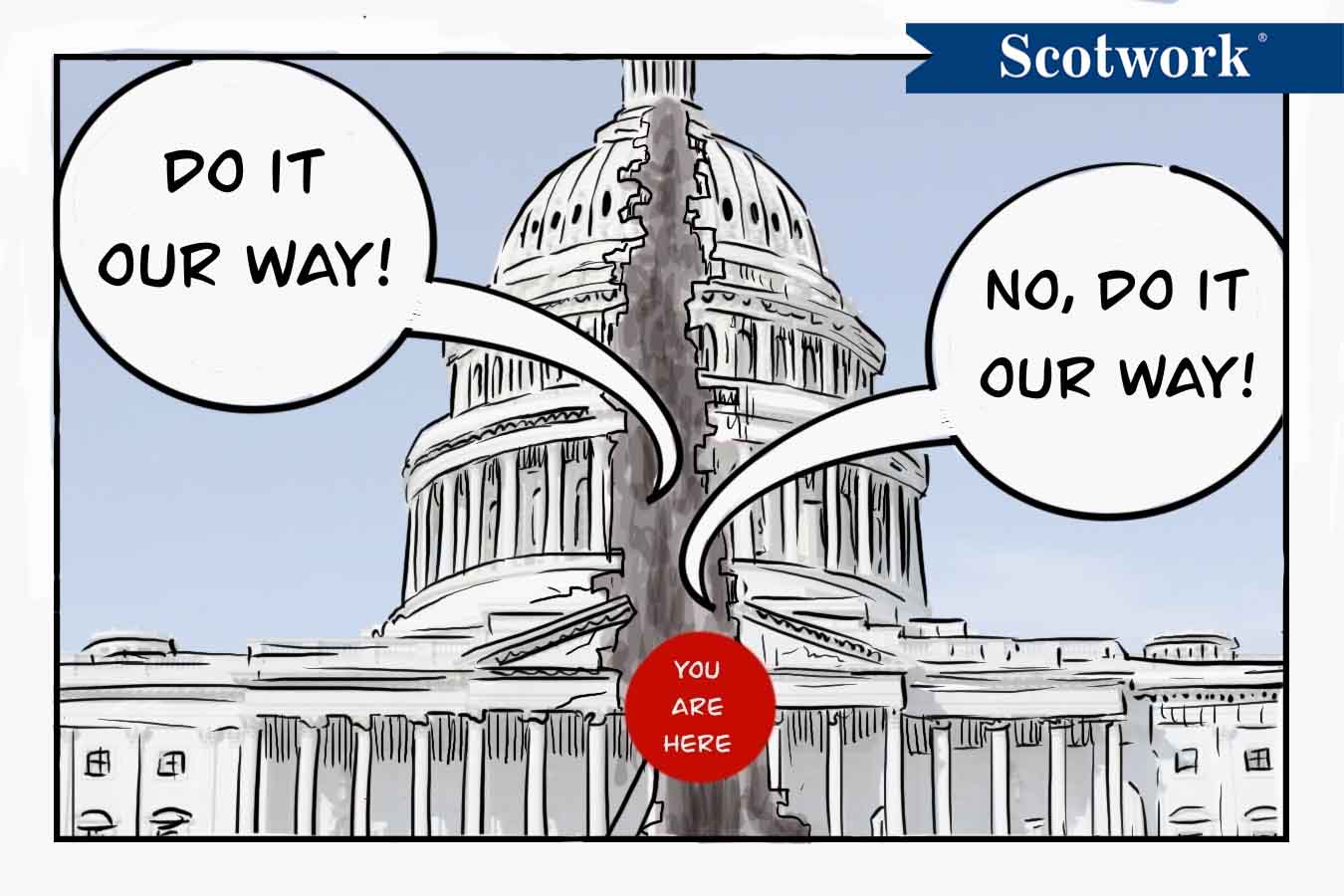I was at the Capitol in Washington, D.C. the night the government shut down. Unfortunately, I wasn’t invited in to help negotiate a deal. Then again, I don’t think either side was in a mood to negotiate. From the start, it was framed as a win-lose showdown.
Transactional relationships, like buying a car or an appliance, tend to produce win-lose negotiations. The primary reason: There’s no ongoing relationship. Neither party expects to work with the other again, so there’s little concern for the future.
But when that same approach is applied in situations where the relationship does matter, it’s a recipe for disaster: The “losing” side often becomes focused on payback more so than progress, shifting future negotiations away from needs and priorities and toward emotion, ego, and revenge. That’s when a short-term “win” turns into a long-term loss.
After a deal, the last thing you want is for the other side to spend their energy dismantling it or plotting how to beat you next time. Good negotiators aim for both parties to leave the table feeling invested in the agreement, channeling their effort into making it work, not tearing it down.
Of course, you can’t always control how the other side approaches negotiation. While I strongly recommend a collaborative mindset, you also need to be prepared to pivot if the conversation becomes competitive.
Tips to Avoid Win-Lose
- Find a mutual goal: It’s hard to go to war with someone you depend on. Seeking a common desired outcome will give you a solid foundation for collaboration.
- Use “us/we” language: Words matter. Using “I/me” language will only push the other side to do the same. Before you know it, collaboration is lost. Keep bringing the other side into the conversation with more inclusive language.
- Keep checking in: Assume nothing and take nothing for granted. Keep checking in with the other side to see how they’re doing. This will help ensure that minor disconnects don’t become great divides.
Tips if You Must Compete
- Exploit information: Use information to shape the narrative in your favor. Exploit the information you have and the insights the other side lacks to control how the negotiation is framed.
- Be ready to walk away: Your greatest strength will be your ability to not agree to a deal. Have the resolve to say “no” and stick to your position. Whoever blinks first will usually lose.
- Make it public: Create outside pressure by making your position more public, either by bringing in other stakeholders or going around your counterpart (think: “Let me speak to your manager”).
Keep this in mind: Once you take a more competitive stance, it’s difficult to go back. I offer these win-lose tips not as a roadmap of where you should take your negotiation, but rather as a fallback plan in case the other side takes you down this path.
The biggest losers of the government shutdown are the thousands of federal workers who have, for the time being at least, lost their livelihood. They’ll be in the crosshairs of both sides as our politicians continue their win-lose approach. Hopefully, decorum and common sense return sooner rather than later. ’Til then, protect your negotiations accordingly.
Negotiation Training and Consulting Help You Protect Your Negotiations.
Once you take a more competitive stance in your negotiations, it’s difficult to go back. Rely on Scotwork’s 50 years of expertise to keep your talks out of win-lose territory.

